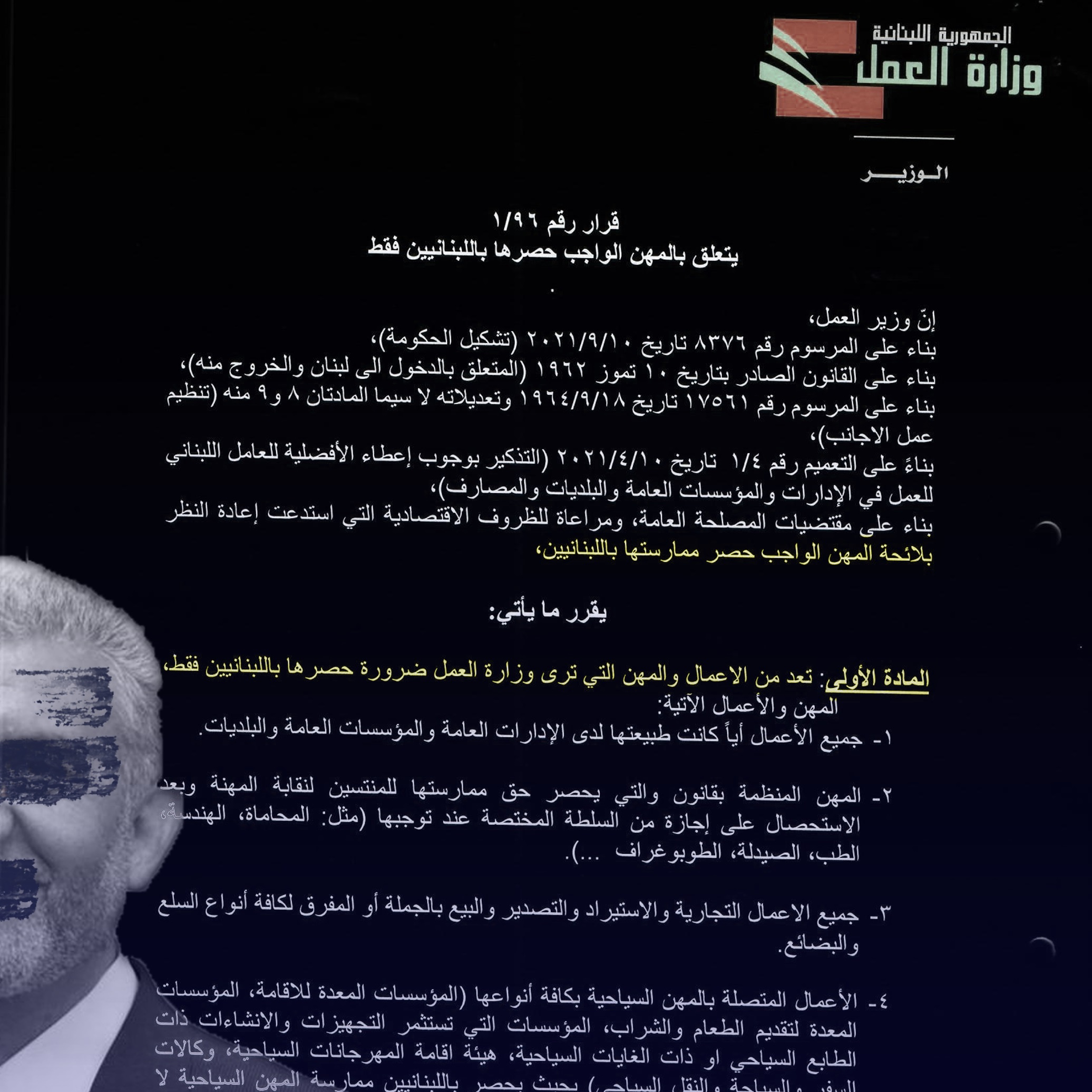Weekly News Report: July 1-8, 2022
12/07/2022
Articles and views shared in the Weekly News Report do not necessarily represent ARM’s views. Information in these articles has not been fact-checked by ARM and may contain some errors. ARM is simply compiling all news relevant to migrant communities to inform our advocacy efforts and to facilitate the work of organizations that cater to migrant communities.
Calls to Deport Syrians in Bekaa Following Bread Shortage [here]
Bekaa residents have been reporting “resentment” towards Syrians over the past several months with the ongoing bread shortage, according to an article in Al Akhbar newspaper. As a result, reports of attacks on Syrians’ shops and motorcycles saw an increase, as well as calls for deportation in Baalbek.
The article cited that the lack of raw materials, such as flour, alongside the demand rate for bread, is causing “tensions” between Lebanese and Syrians in queue lines for bread.
UN Issues a $546 Million Appeal for Lebanese, Migrants and Refugees [here]
UN Resident and Humanitarian Coordinator in Lebanon Najat Rochdi revised and issued an appeal of $546 Million for “more than one million Lebanese, refugees and migrants.” She stated that “Lebanon’s crisis is affecting everyone, everywhere across the country.”
The article reported that “2.2 million vulnerable Lebanese, 86,000 migrants and 200,000 Palestine refugees in Lebanon currently require emergency aid; in addition to 1.5 million Syrian refugees that are unable to afford or even access health, food, electricity, water, education and waste-water management, not to mention lifesaving protection services.”
It is unclear whether the appeal is part of the 2022 Lebanon Crisis Response Plan (LCRP), which is a $3.2 billion plan, or if it is in addition to it.
Syrian Newspaper Endorses Deportation Efforts in Lebanon and Turkey [here]
An article published by the Syrian “Al Watan” Newspaper cites the Lebanese Minister of Labor Moustafa Bayram, who expressed that the issue of Syrian refugees -referred to as “immigrants”- has been a burden on Lebanon’s economy, “at a time when Turkish Police are exercising an oppressive campaign against Syrians.”
The article reports that the Minister adopted some “labor and career-related measures” after the 6th Brussels conference. “They told us during the Brussels conference that the international community has no intention of sending them [Syrians] back to Syria,” Bayram said, “which is why we took it upon ourselves to limit 126 careers to Lebanese nationals only, and that exceptions are only made to facilitate the work of the organization [requesting an exception].”
The article then follows with reports of Turkish Police arresting and deporting several Syrians, alongside reports of racism and hate speech that “make Syrian refugees think of alternatives.”
Published in a newspaper supported by Assad’s regime, the article’s use of racist discourse implies an endorsement of the Lebanese government’s campaign to deport Syrians. The choice of vocabulary is worth noting: Lebanese government officials refer to Syrians as “immigrants,” whereas the article uses “refugees” in the reports from Turkey. The article also states 126 excluded careers, while Bayram said in another article that the list is 127 careers.
Minister of Labor Praised for Excluding Non-Lebanese Nationals from 127 Jobs [here]
Baalbek Municipalities Union held a meeting with the Minister of Labor Moustafa Bayram, during which the Syndicate and Workers’ Officer Chafic Chehade praised the ministry’s “achievements” and regulations to exclude foreign employees from certain jobs.
The achievements included “imposing a standard unified contract (SUC) for migrant domestic workers,” which is only vaguely mentioned and does not address the flaws surrounding the proposed SUC draft, and the “recruitment and employment platform,” which was the highlight of the meeting.
As for regulations, Bayram pointed out the Ministry’s plan to limit 127 careers to Lebanese employees only. He said that this list of careers has been “published on the platform.” He also stated that “any company or organization that wants to hire a non-Lebanese is required to publish a job posting on the platform. After that, 2 weeks must pass before it’s permitted to hire a non-Lebanese.”
The only list that we were able to find on the ministry’s website was in Regulation N. 96/1 signed by the Minister in November of 2021. The regulation states that the previous list of careers that were allowed for foreign employees is rendered obsolete by this regulation. Furthermore, the list excludes non-Lebanese from “managerial roles of any kind.”
Related Posts
Have Any Questions?
To inquire about this statement and the context, email us or fill the form.
Join Our Newsletter
At the Anti-Racism Movement (ARM), we are constantly working on a multitude of different activities and initiatives. Most of our activities are only possible with the help of dedicated and passionate volunteers who work in collaboration with our core team.
The Anti-Racism Movement (ARM) was launched in 2010 as a grassroots collective by young Lebanese feminist activists in collaboration with migrant workers and migrant domestic workers.
Quick Links
Useful Links
This work is licensed under a Creative Commons Attribution 4.0 International License.
Developed by CONCAT
